Abstract
Mutants of Pseudomonas putida (Agg−) that lack the ability to agglutinate with components present in washes of bean and cucumber roots showed limited potential to protect cucumber plants against Fusarium oxysporum f. sp. cucumerinum. However, a higher level of protection was observed against Fusarium wilt in cucumber plants coinoculated with the parental bacterium (Agg+), which was agglutinable. The Agg− mutants did not colonize the roots of cucumber plants as extensively as the Agg+ parental isolate did. In competition experiments involving bean roots inoculated with a mixture of Agg+ and Agg− bacteria, the Agg+ strains colonized roots to a greater extent than the Agg− cells did. These data suggest that the Agg+ phenotype provides additional interactions that aid in the beneficial character of P. putida.
Full text
PDF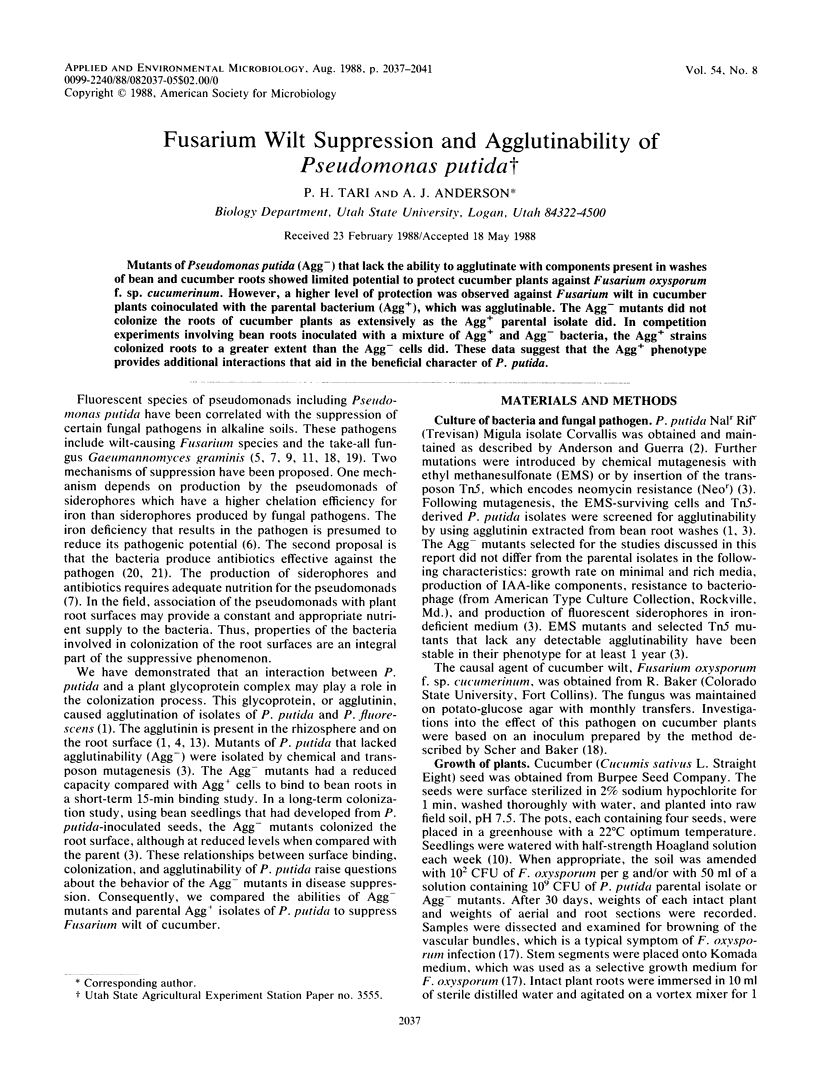
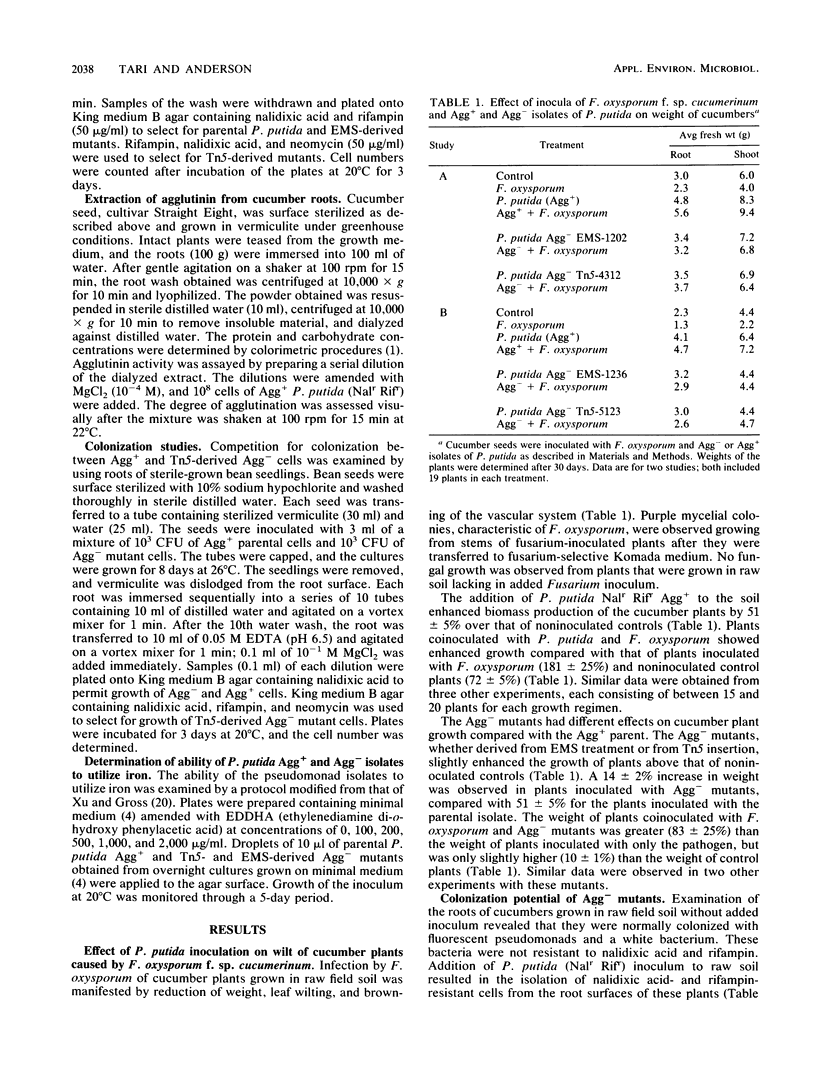
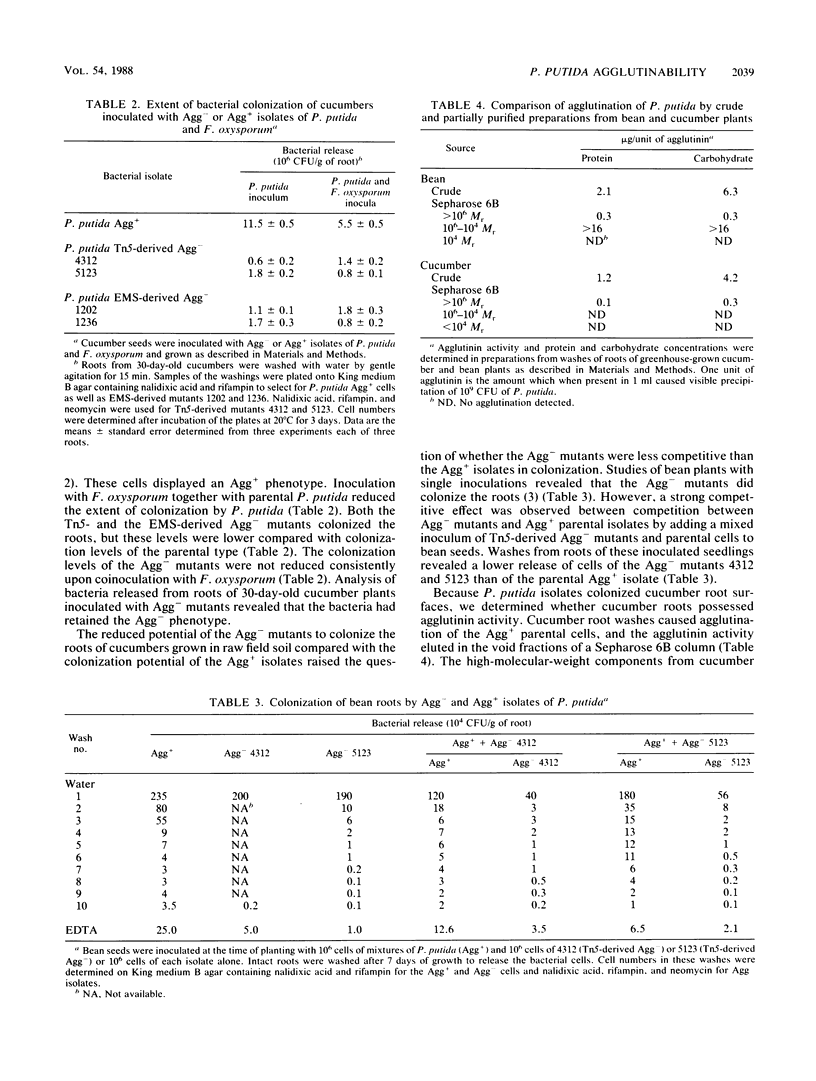
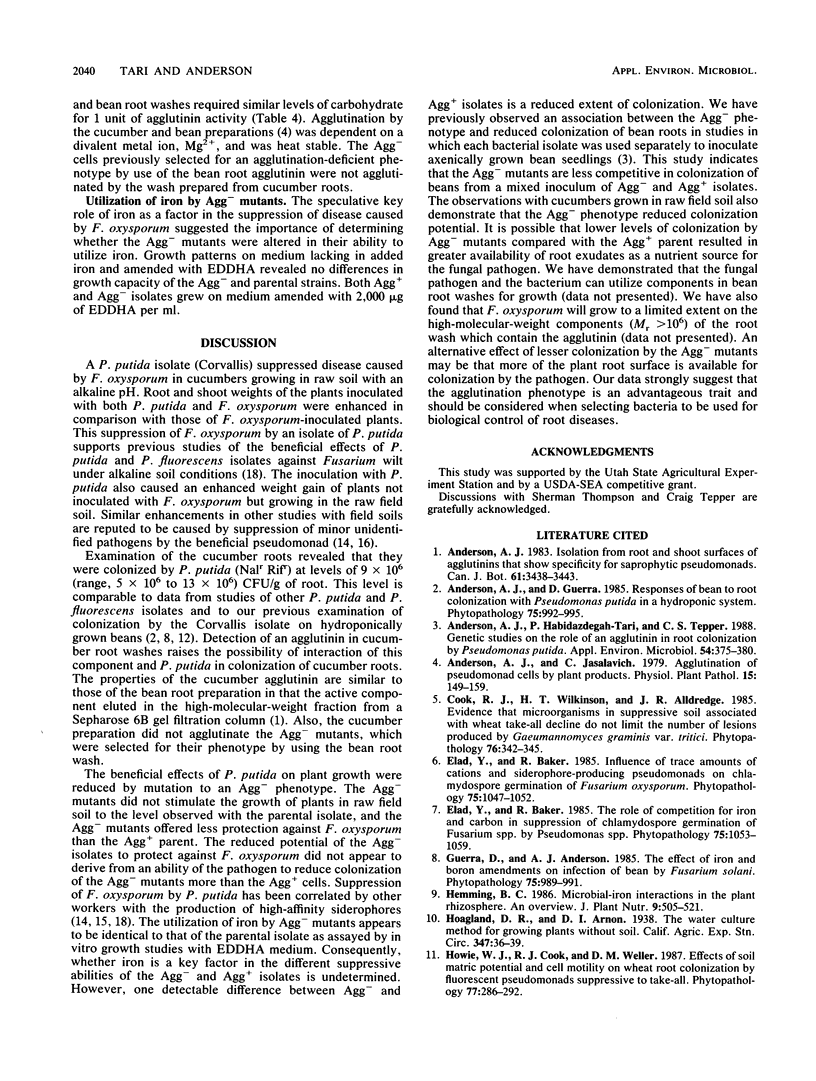
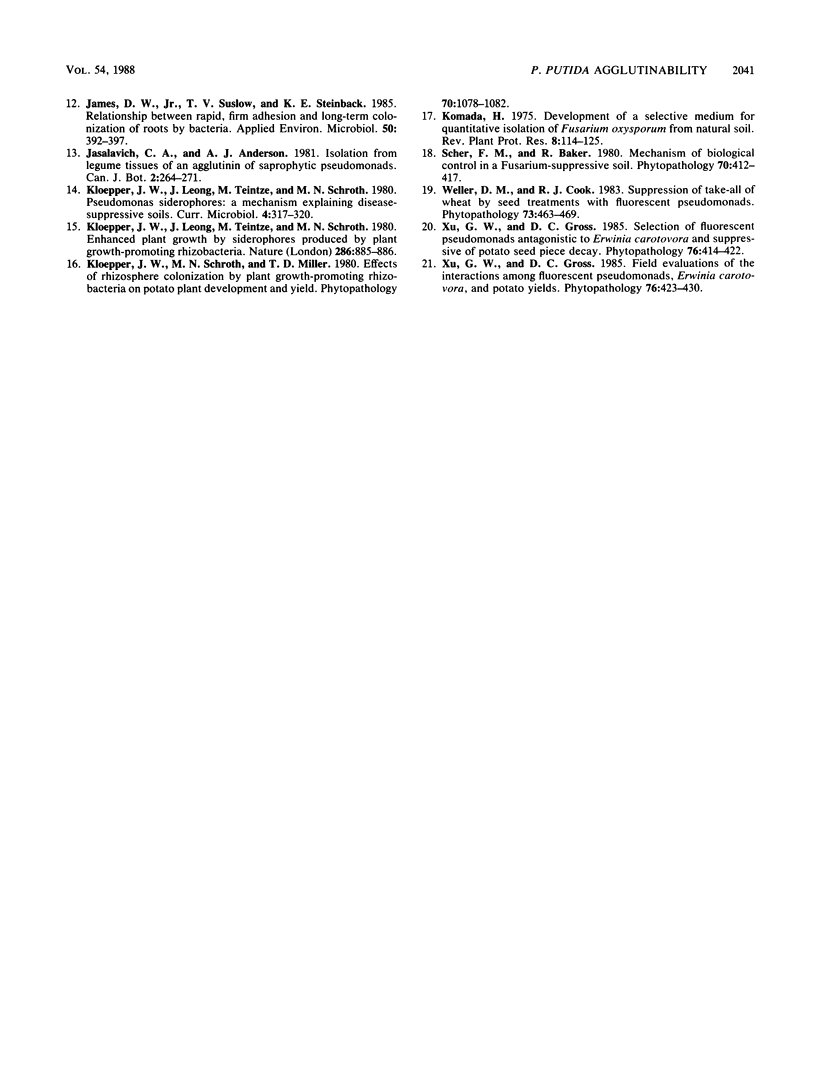
Selected References
These references are in PubMed. This may not be the complete list of references from this article.
- Anderson A. J., Habibzadegah-Tari P., Tepper C. S. Molecular Studies on the Role of a Root Surface Agglutinin in Adherence and Colonization by Pseudomonas putida. Appl Environ Microbiol. 1988 Feb;54(2):375–380. doi: 10.1128/aem.54.2.375-380.1988. [DOI] [PMC free article] [PubMed] [Google Scholar]
- James D. W., Suslow T. V., Steinback K. E. Relationship between Rapid, Firm Adhesion and Long-Term Colonization of Roots by Bacteria. Appl Environ Microbiol. 1985 Aug;50(2):392–397. doi: 10.1128/aem.50.2.392-397.1985. [DOI] [PMC free article] [PubMed] [Google Scholar]


